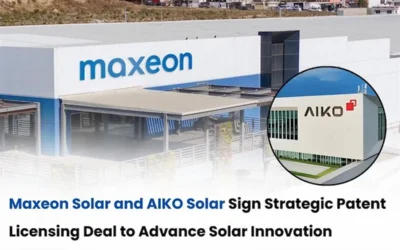
Intellectual property has, in recent years, emerged to be a property with greater worth than any other. A type of intellectual property is a patent, which holds exclusive rights of a new invention, design, or process. If you happen to be a patent owner due to your own invention or running a business owning a patent, you would, of course, be eager to know how one can sell their patent for profits. Today, the business of selling a patent has emerged as one of the most profitable businesses within a developing economy like that of the Indian market. So let’s take you through this article on sell a patent in India and how it may also be helpful in enabling you to fetch significant business profits during the course of this article.
Definition of Patent and It’s Value
A patent is a kind of intellectual property that allows the owner of an invention or process to enjoy the exclusive rights of that invention or process for a number of years, which in most countries is for 20 years. The inventions must be novel, nonobvious, and industrially applicable. If you have a patent, you are in a position to prevent other people from making, using, selling, or distributing your invention without your consent.
Value of a Patent
- Monopoly: Even after getting a patent, there is some sort of exclusivity; nobody can use your invention during the term of a patent.
- Revenue generation: You are generating revenue either by selling or licensing a patent.
- Value to your firm: High-quality patent portfolio adds value to your business hence even more attractive to potential investors.
Step-by-Step Guide to Sell a patent in india
Patents can be probably very rewarding business. It is not at all that the procedure is tough, but rather takes into account proper handling of the legal formalities along with the market forces involved. It is step-by-step regarding the sale of your patent.
Patent registration is necessary
Of course, register your patent at the Indian Patent Office. The first rule, if the patent is not registered and hence is not valid.
- Patent Application: Your invention is to be presented in front of the Indian Patent Office (IPO). Prepare all the documents required and the fee. IPO will issue a patent for your invention if it goes through the proper examination process successfully.
- Patent Search: You are going to search patents to ensure your idea is new and not infringing on existing patents. You can do this through the IPO or by hiring a patent attorney.
- Patent Grant: You may now start selling since your patent has been granted.
Sell or License Your Patent
You can sell it directly to the buyer as a patent or license it to other companies. Both of these are profitable but are different in the advantages they provide.
Sale of Patent: You sell your patent, and thereby, you are transferring all rights and ownership rights to the buyer. After the sale, you will not have control over your patent.
Patent Licensing You are licensing your patent: Again, here, you own the patent but for consideration permit another person or entity to exploit the patent on your behalf and then get streams of revenue that will keep arriving on a regular basis through usage.
Value of Your Patent
Valuation of patents enables a person to estimate the value of his/her patent before selling it. Properly estimated patents, therefore, enable you to get a real feel of its value and thus avoiding selling it lesser than its real value.
- Market research: Patent similar research by the market concerning the same patent to be able to get a feeling of trend of the valuations in the market. Studies which are akin and geographical locations also apply
- Patent valuation expert: Advise a patent valuation expert. This is pretty scarce hence it comes with an expense because mostly they encompass potential market place, how technological as well as longevity of the patents.
- Value in Generating Revenue: The worth of a patent will be evaluated by the ability to create value in generating revenue in the market. This can either be in terms of saving cost for a company in utilizing the patent or creating profits.
Identify Prospective Buyers or Licensees
Finding the appropriate buyer or licensee is one of the most important steps that should be undertaken when selling your patent. Potential buyers may include;
Large companies buy patents as a way of expanding the lines of their products, reaching new markets, or eliminating the competition.
- Entrepreneurs and start-ups: This is an interesting group in that there are some small businesses or small firms who will want your patent based on what goals of your business.
- Patent aggregators: Companies that purchase large quantities of patents from independent inventors and corporations for resale to large firms in bulk.
- Research Institutions: Universities or research institutions are willing to acquire patents for the novel technology.
Use patent brokers, too. Patent brokers will introduce the buyer to you at a commission.
Negotiate the Sale Terms
Ensure that both parties are satisfied by defining both sale and negotiation once you are at the negotiating table.
- Price: Agree on a fair price for the patent, considering how much the valuation of the patent is worth, and its marketability.
- Payment Mode: Whether the price is payable by a single payment or in instalments, mention this clearly in the agreement,
- Transmission of Rights: Include a provision in this agreement indicating clearly that all your rights in a patent are passing to the customer
- Confidentiality: If your work remains a mere prototype in an experimental stage for the intended prototype, then a confidentiality contract would be appropriate.
Read Also: Apple Patent Monetization Case Study: How IP Increases Market Dominance
Carry out a Sale Agreement
After agreeing to the terms of sale, the parties should enter into a legal sale agreement. This should include terms of payment, transfer of rights, and other stipulations in detail.
- Engage a Patent Attorney: It would be prudent to engage a patent attorney in this process also. He can draft a sale agreement that protects your interests.
- Transfer at the Indian Patent Office: After the sale is completed, the name of the new owner has to be registered at the Indian Patent Office. This would transfer the patent rights.
Receipt for Payment
Once you have signed the sale agreement and the transfer has been made, you will get your payment for your patent. The payment will either be a one-time lump sum or even instalments, depending on what you may have agreed to.
Ways to Maximize Profit When Selling a Patent
- There are ways through which you may maximize your profit when selling a patent. These include
- Multiple Interested Buyers: Don’t sell to the first interested buyer. Look for many potential buyers which will generate competition and increase the price.
- Protect your interests, and get a patent attorney to ensure that any sale agreement serves your interests besides future earnings.
- Market Your Patent: Patent brokers or online patent market places or business connections can be used very efficiently to market your patent.
If one is convinced that this patent can be of immense value for a long time, then license it. In this case, the return would be greater in the long term than selling the license to someone.
Conclusion
One of the main most profitable business options for the inventor and the entrepreneur is selling a patent in India. It is a process that requires proper planning, including the understanding of patent valuation, to identify the right buyer or licensee. Here are the steps that will help you sell your patent successfully with the likelihood of creating cash-generating possibilities of a rich business collaboration. The value of a patent is far beyond your invention. Strategy well applied means proper tactics and strategies on your part to translate your innovative ideas into profit-generating, successful business assets.
Read More: How Start-Ups and MSMEs Can Commercialize Their Patents Worldwide









